The Earth’s Magnetic Poles May Flip: What Happens Then?
In school, we all learn about the Earth’s magnetic poles, how they are used for navigational purposes, and how the force that generates them works to shield Earth from harmful cosmic rays and charged solar particles. These poles, a marvel of nature, play a crucial role in our existence. But we seldom hear of the dangerous possibilities that come with their unstable nature, a reminder of the delicate balance of our planet.
Scientists have theorized that Earth’s magnetic poles could flip after a period of decay at some point in the future, and the consequences of such an event could be catastrophic for our world and its billions of inhabitants.
The Poles of the Earth
It’s fairly common knowledge that the world has two poles: the geophysical and magnetic poles.
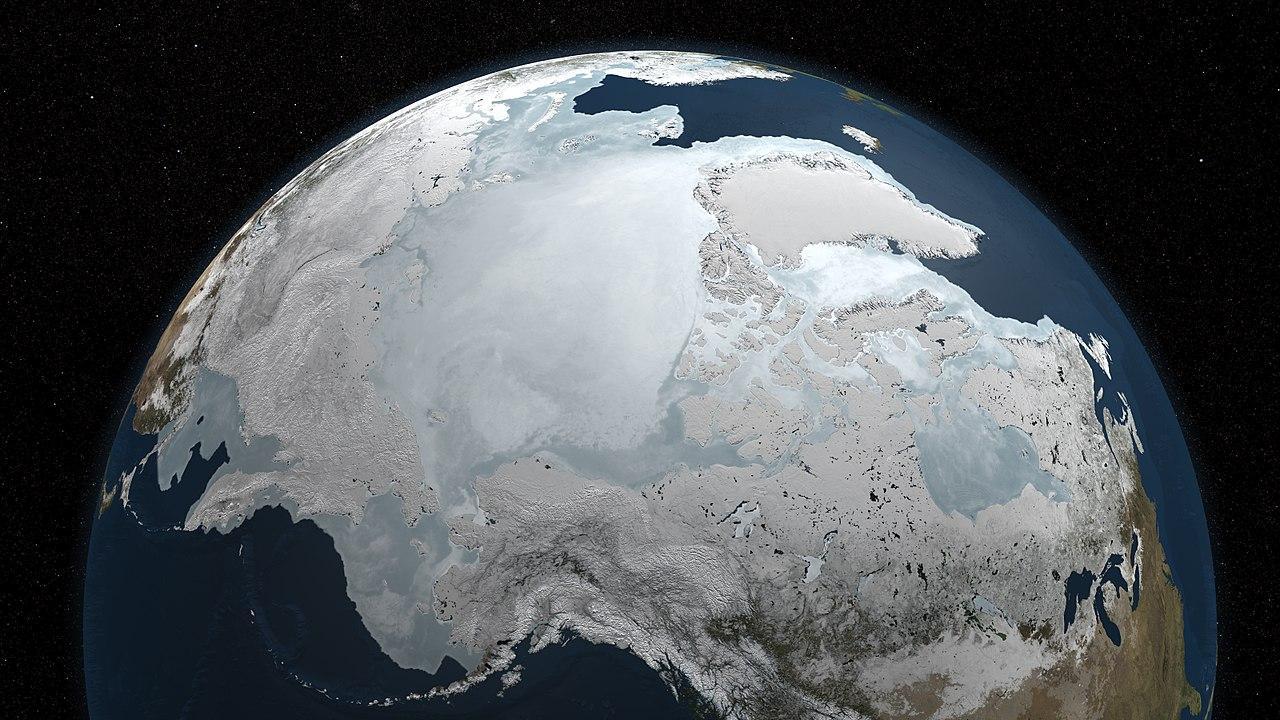
Source: Wikimedia
The geographic north pole refers to the end of Earth’s rotation axis, which lies in the middle of the Arctic Ocean. This pole is the most commonly used, as it’s a fixed point, which marks the northern tip of the axis our planet rotates around.
The Magnetic Pole
However, Earth has another pole, known as the magnetic pole, which is slightly more chaotic in its placement.
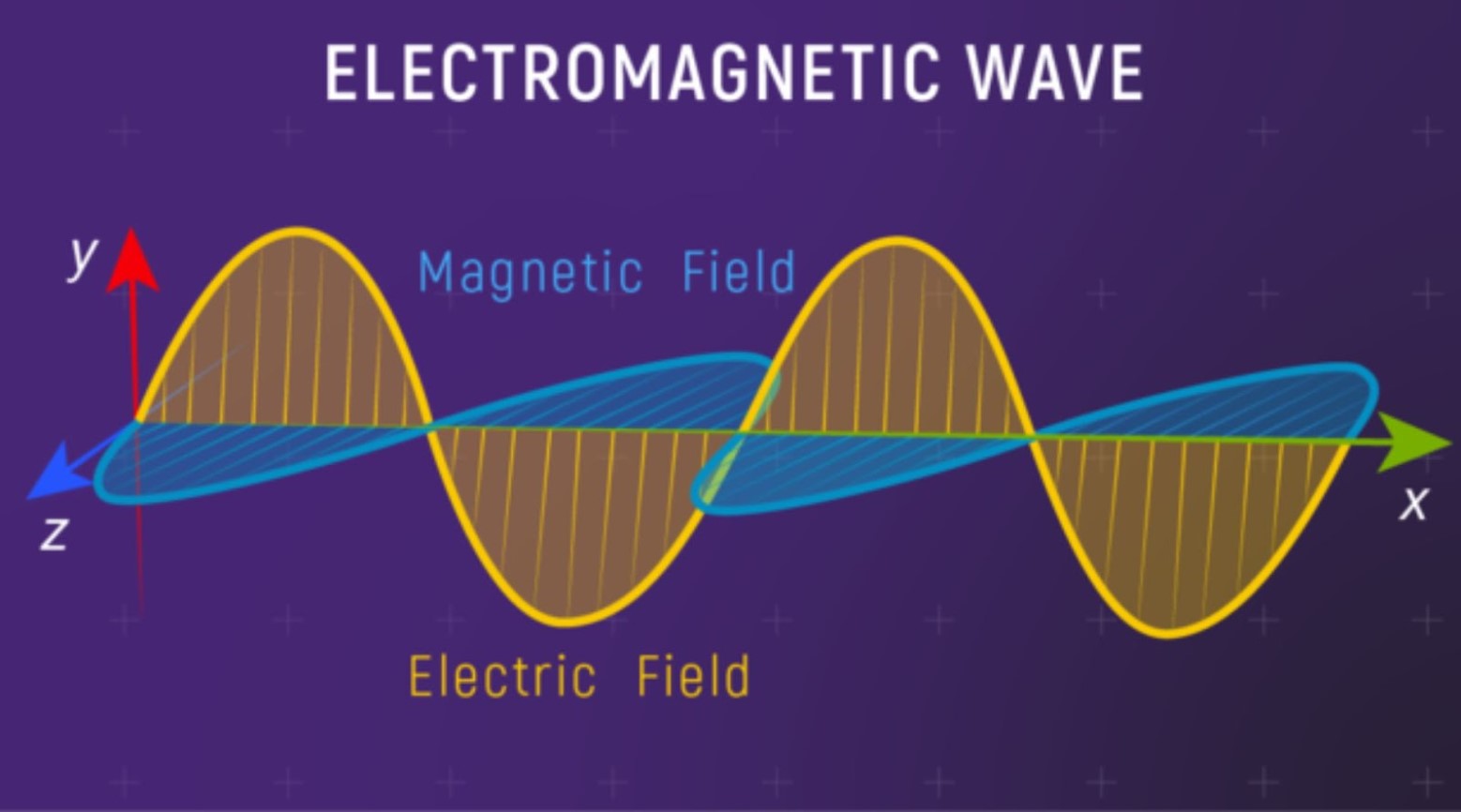
Source: Leah Hustak/Wikimedia Commons
This pole is fairly unstable and moves around 50 kilometers each year. During the beginning of the 20th century, it was located in Canada. By the early 2000s, it was east of Canada and eventually came to rest in Greenland.
Magnetism Is Not a Static Force
During the early years of studying magnetism, experts in the field quickly realized that the force was not static. Geomatic jerks are common and can affect compass readings, force inaccuracies in ground navigation, and even observation.

Source: Wikimedia
A study published in Nature Geoscience claims that geomagnetic jerking is caused by the liquid metallic core deep beneath the earth. According to the report, the steady movement of the liquid nickel and iron ore that forms Earth’s magnetic field also produces the jerks.
Problems Which Could Arise From a Weakened Magnetic Field
These jerks can become taxing on our planet’s magnetic field over time and could eventually result in serious problems for Earth and all of its inhabitants.
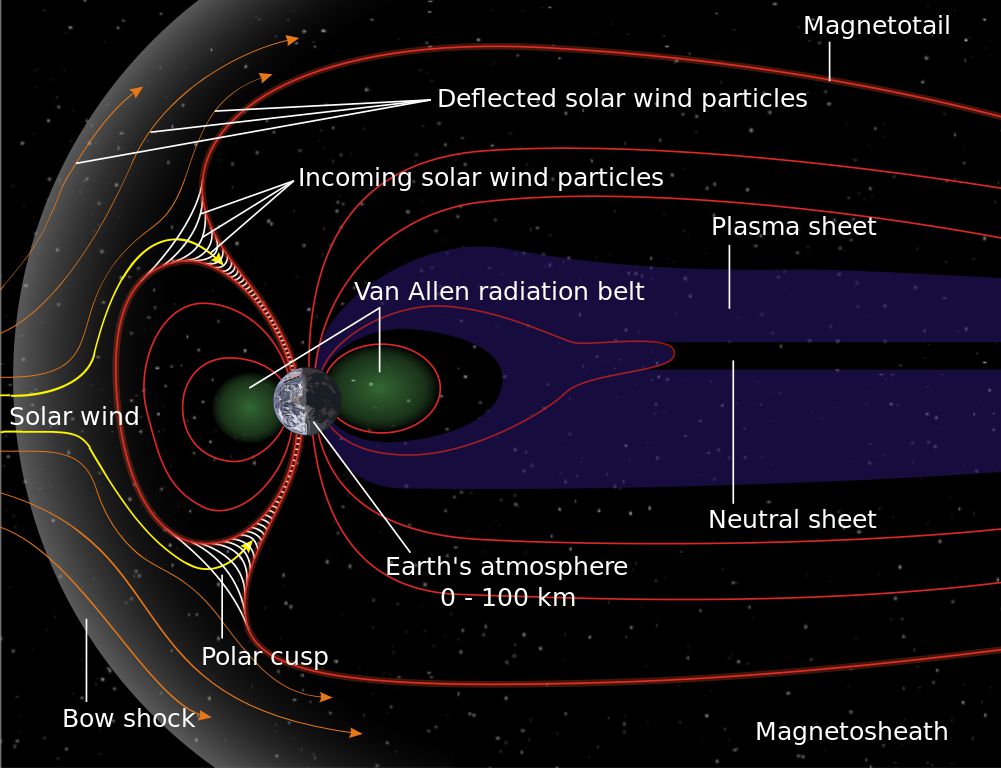
Source: Wikimedia
The Earth’s magnetic field radiates out into space to form a protective layer around the planet known as the magnetosphere; however, these jerks can weaken the field.
What Does The Magnetosphere Do?
The magnetosphere helps keep our planet safe from all the violent attacks sent forth by the sun and other celestial bodies.
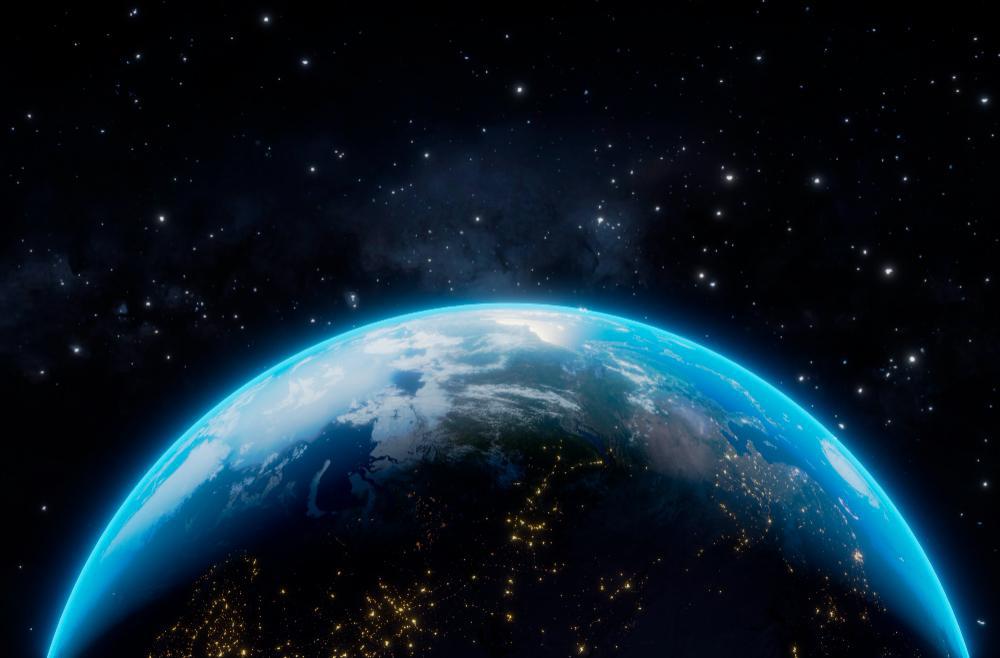
Source: Wikimedia
From charged solar particles to cosmic rays and radiation, the magnetosphere acts as a line of defense, somewhat like a theoretical force field, ensuring that very few of these dangers reach the Earth’s surface.
The Possibility of a Pole Flip
Over time, the jerks can result in fluctuations that could ultimately bring about a full reversal of the magnetic poles on our planet.
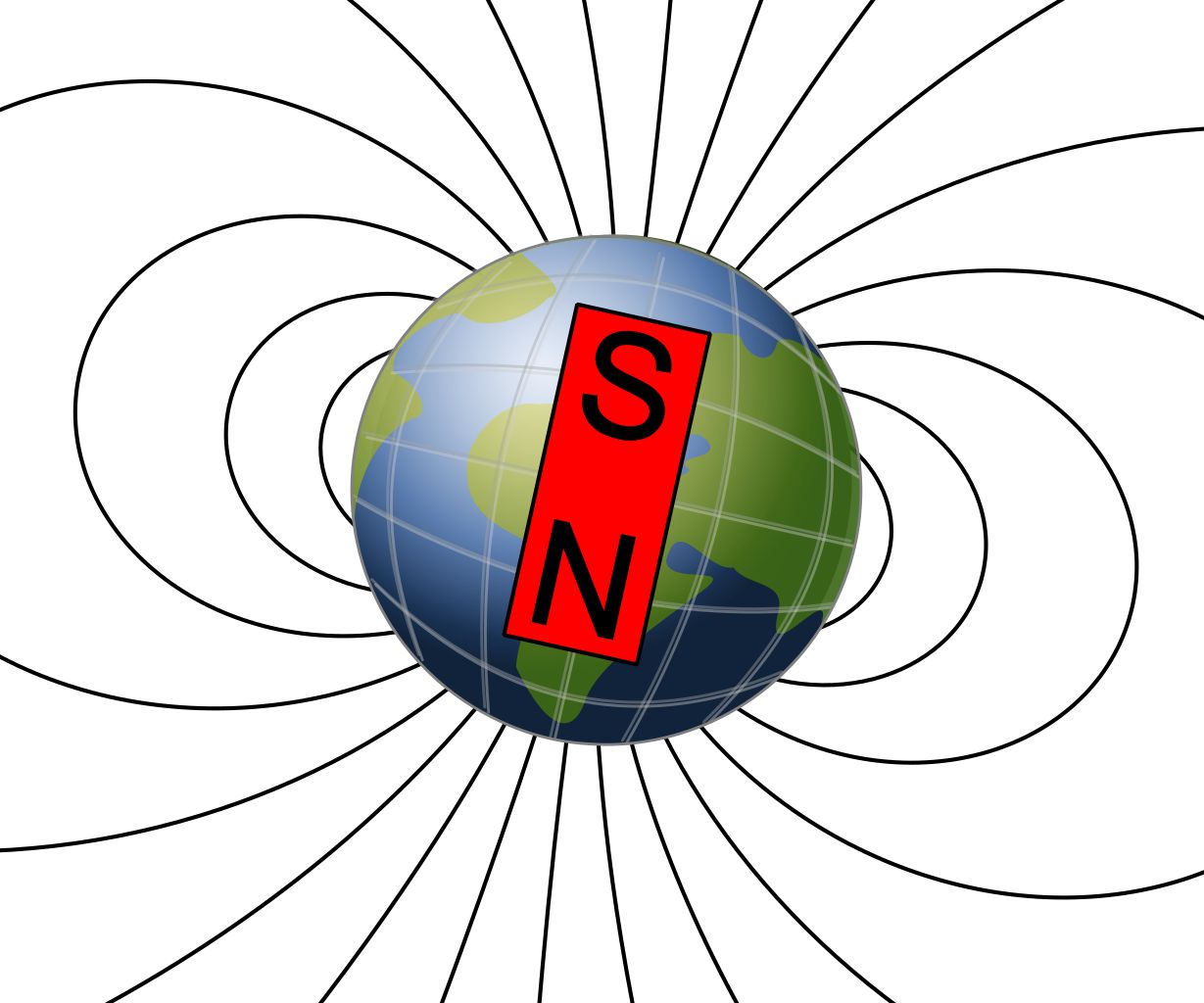
Source: Wikimedia
Simply put, the North Pole would become the South Pole and vice versa. This essentially means that the magnetic field lines of force would enter in the Southern Hemisphere and exit through the Northern Hemisphere as opposed to how they currently enter in the North and exit in the South.
Reversal of Earth’s Poles
Experts have surmised that an event that would reverse the polarity is extremely likely at some point. Yet, these events are not periodic and are extremely difficult to predict, mostly due to the behavior of the mechanisms responsible for the switch.

Source: Freepik
However, at best estimations, some scientists have suggested that the poles typically reverse once every 780,000 years.
Astrophysicist Explains Possibility of Pole Switch
During an appearance on News Radio 1450 WILM, astrophysicist Hugh Ross spoke with the host and explained the possibility of a complete pole switch in the future. However, it appears there are no warning signs yet.

Source: FreePik, African American male journalist
While acknowledging the possibility of a pole switch, Ross said, “Yeah. The pole is moving. It’s quite a bit faster than it was in the previous century. But it’s not out of the ordinary. So when you do get a reversal of the magnetic pole, you do get rapid motion. We’re nowhere near that degree of rapid motion yet.”
Pole Switch is a Million Years Away
According to Ross, there’s no need to worry as such an event” could even be a million years from now.”

Source: Freepik
The astrophysicist went on to settle the nerves of anyone listening at home by suggesting that even if such an event had occurred, it might not have directly affected life on Earth. “And there have been hundreds of pole reversals in the past. And none have done serious damage to life,” he said.
Earth's Magnetic Field Will Weaken
Ross, however, doesn’t rule out the potential dangers that are associated with a pole reversal, admitting that the Earth’s magnetic field could certainly be weakened for an extended period of time.
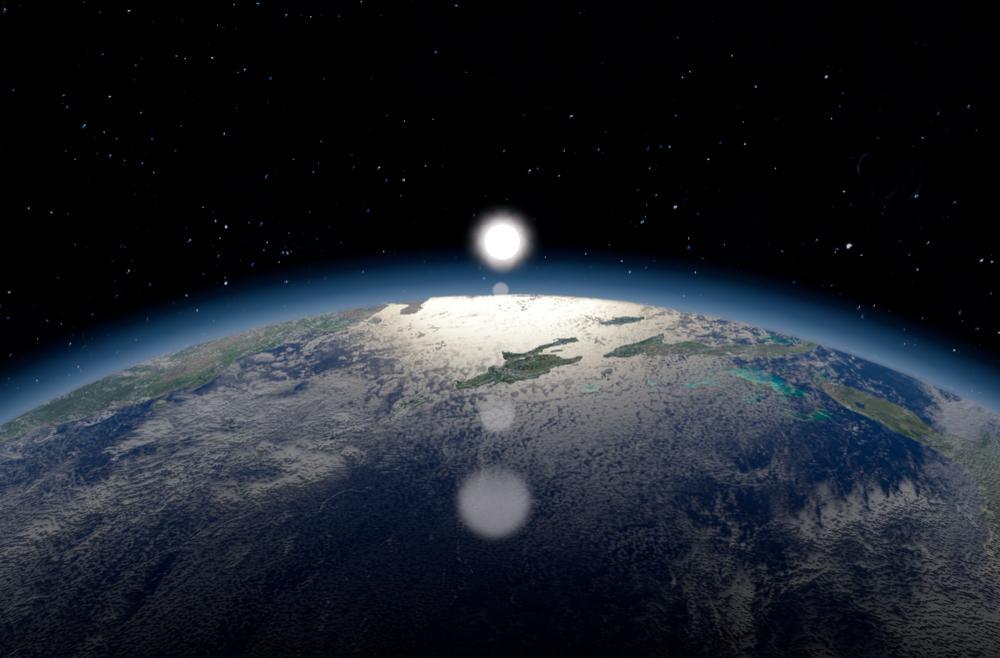
Source: Wikimedia
“But it is true that when you approach, you know, a pole reversal, the magnetic field weakens,” said Ross. “So the variation of the magnetic field. The movement of the magnetic pole. None of that is out of the ordinary. On the other hand, we can’t rule out the possibility we’re heading towards a magnetic reversal.”
Astrophysicist Explains Pole Reversal
When questioned about a pole reversal, Ross said, “You can think of the earth’s magnetic field as a far magnetic to the North and South Pole. That’s called a dipole field.”

Source: Freepik
He continued, “What happens is when the magnetic field begins to weaken, it transitions from being a dipole to being a multipole, where you have more than two poles. And that could last for a period of, let’s say, a century or two or thousands of years. And it flips around, and it then becomes north and south. But what is north is now south. What is south is now north.”
What To Expect If Poles Switch
Ross continued by explaining what humanity may begin to experience if a pole reversal event is imminent.
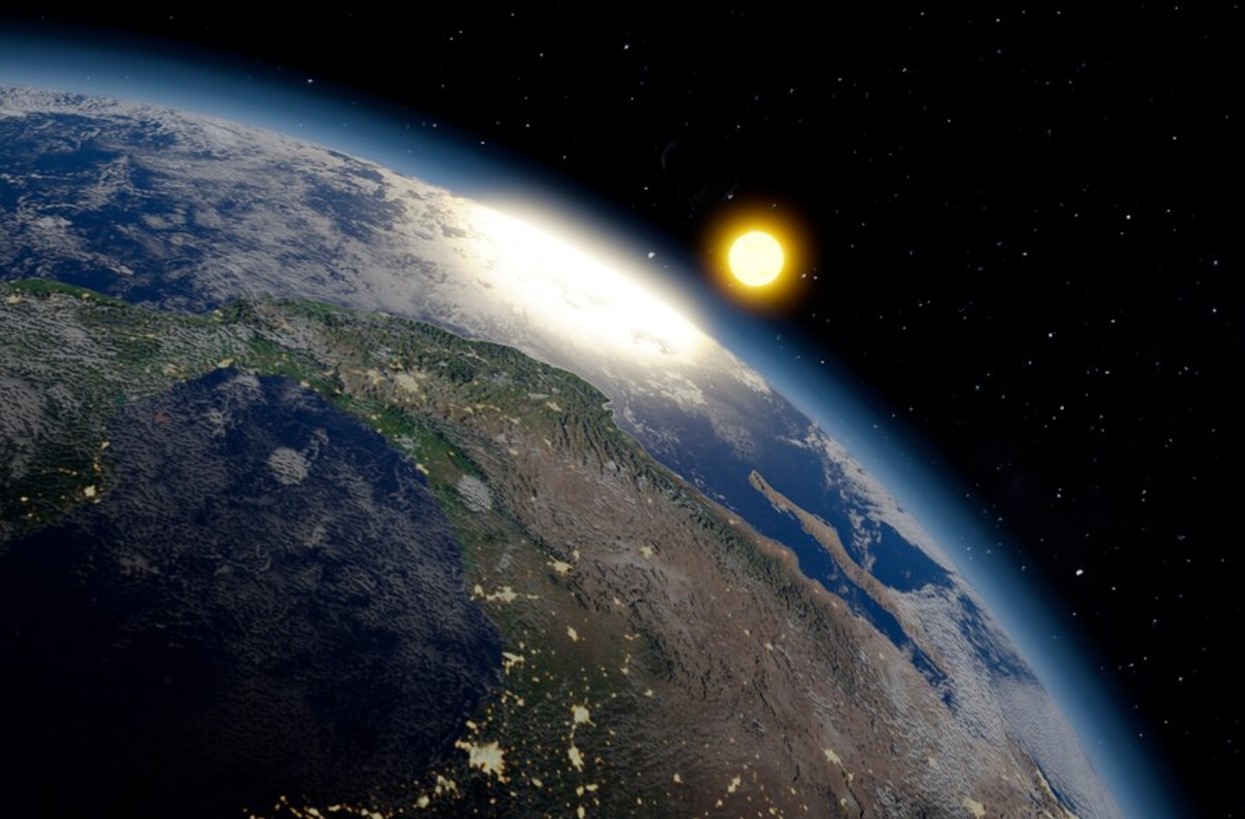
Source: Freepik
“Well, right now, it’s moved past the North Pole. They — the — the axis. It used to be in northern Canada. And over the past 150 years, it’s moved a little bit past the North Pole. And it could switch and go East and West instead of North and South. You know, physicists have been mapping this polar wandering of the magnetic pole for quite some time,” he said.
Geophysicist Speaks on Reversal of the Poles
Speaking on the reasoning behind pole switches, geophysicist Leonardo Sagnotti explained that the event occurs during times of low geomagnetic field intensity.

Source: Freepik
“The flow of the metallic fluid (mostly molten iron) in the outer core of the Earth is chaotic and turbulent. Polarity reversals occur during periods of low geomagnetic field intensity, during which the intensity of the dipolar component drastically decreases, and the structure of the field is unstable,” said Sagnotti during an interview with Space.
Should We Be Worried About a Pole Switch?
Researchers have identified certain periods deep in Earth’s past when the poles reversed, and many suggest this could happen in the near future. However, most scientists are uncertain whether we need to panic.

Source: Freepik
During a period when the poles are close to reversing, the magnetic field that protects the Earth weakens, resulting in more harmful cosmic rays and solar winds reaching the surface of our planet.
The Weakening of the Magnetic Field
The period of instability results in a magnetic field that is around 30% weaker than what we have today. However, another unusual event can occur in that the Earth could end up with more than just two poles
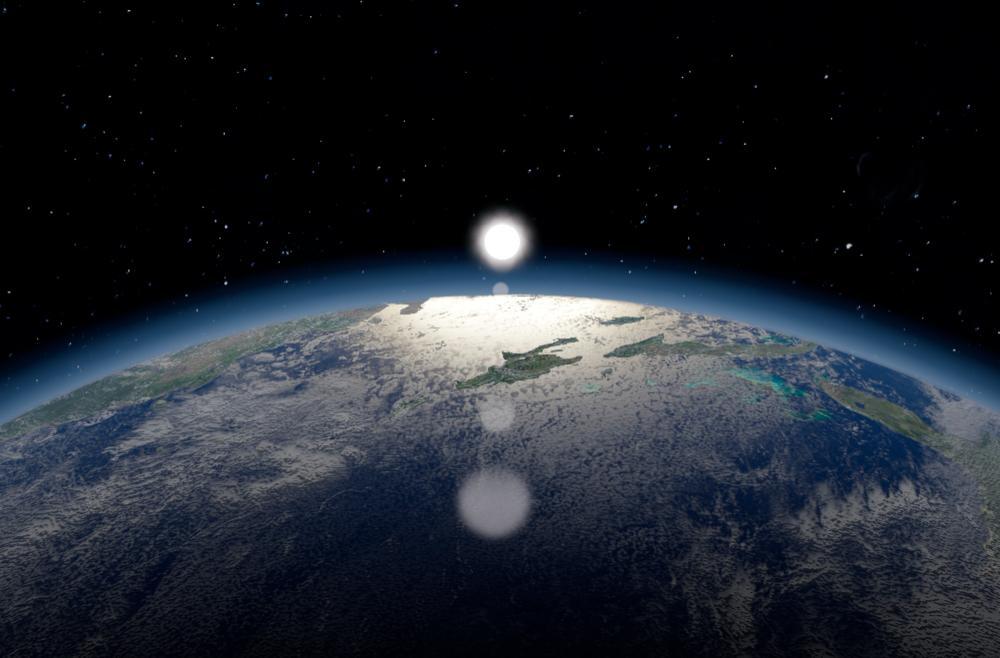
Source: Freepik
Scientists have discerned that in previous polar surveys, four, six, and even eight poles have emerged, each fighting against the next to cancel each other out. This is one reason behind the weakening of the magnetic field.
Major Dangers That Would Ensue
If the magnetic poles switched tomorrow, the Earth would become a fairly dangerous place to live due to the increased radiation passing through the magnetosphere and down to the planet’s surface.

Source: Wikimedia
Those most affected would begin to experience bio-cell destruction, ultimately leading to increased rates of cancer, severe skin damage, and gene mutation, all of which could drastically increase mortality around the world.
Less Harmful Problems That Could Occur
In addition to potential threats to human health, a pole reversal event could disrupt navigation systems worldwide. The enormous jerks in the field that would follow such an event could also heavily affect satellite frequencies.

Source: Wikimedia
Even animals such as the homing pigeon and insects like the fruit fly, which heavily depend on the Earth’s magnetic field for navigational purposes, would be affected. Some animals would be permanently displaced from their native habitats.
Earth Has Experienced 100 Pole Reversals in the Past
According to Ross, even if the magnetosphere begins to weaken during a pole reversal, it won’t weaken enough to cause any real threat to humanity or a devastating loss of life.
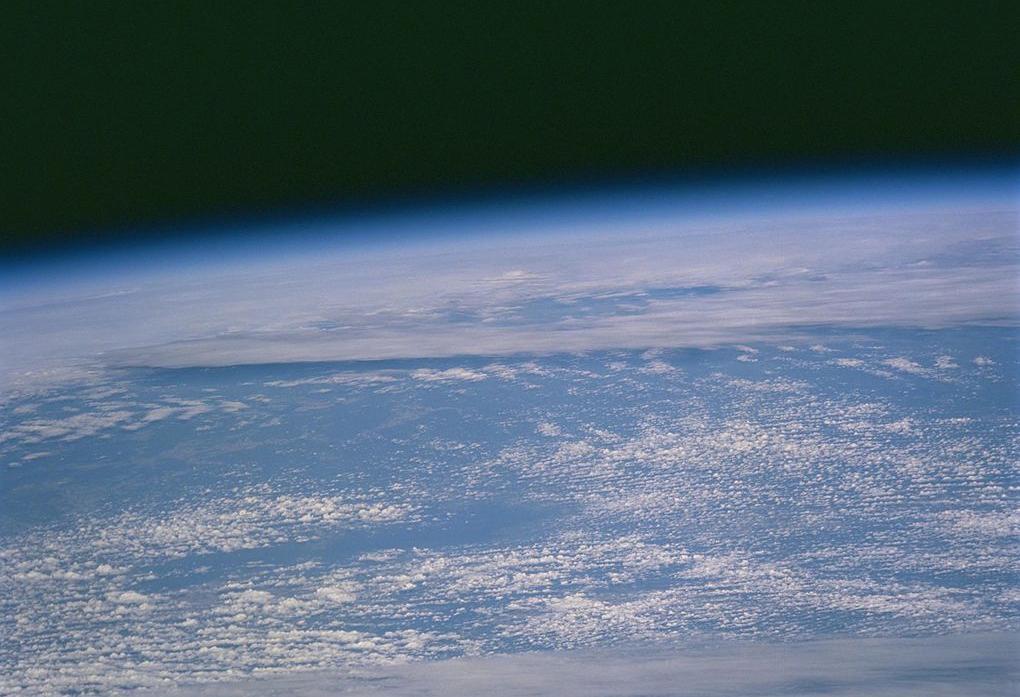
Source: Wikimedia
“There’s been over 100 reversals in the past history of the earth. And we do know that the magnetic field happens when that happens. It weakens by a factor of ten. But even a factor of ten weakening is not devastating to life,” said Ross.
Weaker Magnetic Field
“We can’t document a single extinction of the species during magnetic reversal. But it could impact health,” said Ross.

Source: Benzoix, Freepik
He continued, “I mean, when you get a weaker magnetic field, you get more cosmic radiation coming in. It’s like, if you live in Denver, you get exposed to more cosmic radiation. And your average lifespan gets lessened by three months.”
Unforeseen Consequences of a Pole Switch
While physicists are slightly divided on the dangers such an event would bring in terms of health, most agree there would be a variety of unforeseen consequences.
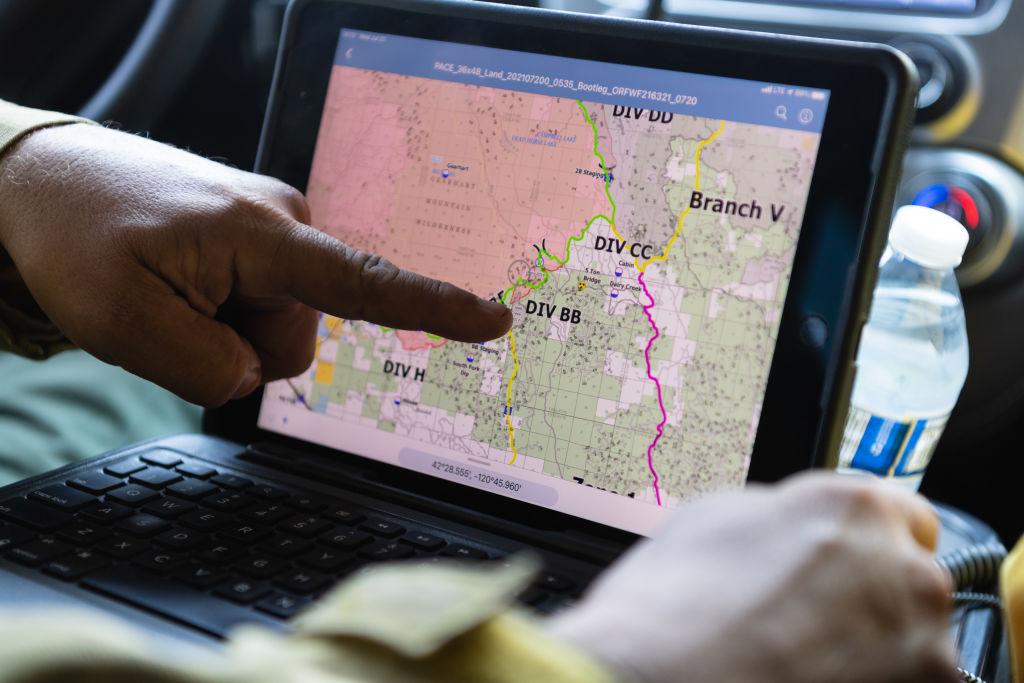
Source: Mathieu Lewis-Rolland/Getty Images
Global GPS systems would have to be adjusted to the new poles and according to Ross, “You do have to adjust the clocks because the earth is very slowly spinning down.
No Need to Worry in the Meantime
While all of the above problems sound worrying, there’s probably no reason to lose any sleep at night because scientists are fairly uncertain as to when the next reversal will occur, nor do we know the true extent of what could happen.

Source: Freepik
Researchers from around the world continue to do their best to understand this unusual phenomenon, and by the time it eventually occurs, we will likely be ready to face the significant event head-on.
The Sun's Poles Are Set to Switch
While all the talk on polar reversal tends to focus on our blue and green planet, according to Paul Charbonneau, a solar physicist at the University of Montreal, the sun could be close to experiencing a flip of its own.

Source: NASA's Scientific Visualization Studio - A. J. Christensen, Scott Wiessinger/Wikimedia Commons
“We are indeed seeing the sun more active than it’s been in probably something like 20 years,” said Charbonneau, alleging that a pole reversal could be on the horizon.
Consequences of the Sun's Poles Flipping
Physicists have theorized that if the sun’s poles did reverse, it could bring with it a plethora of consequences for Earth, including intense solar storms. These would ultimately affect our satellites, which in turn would disrupt GPS and communication across the globe. It could even disable vast portions of the planet’s electrical grids.
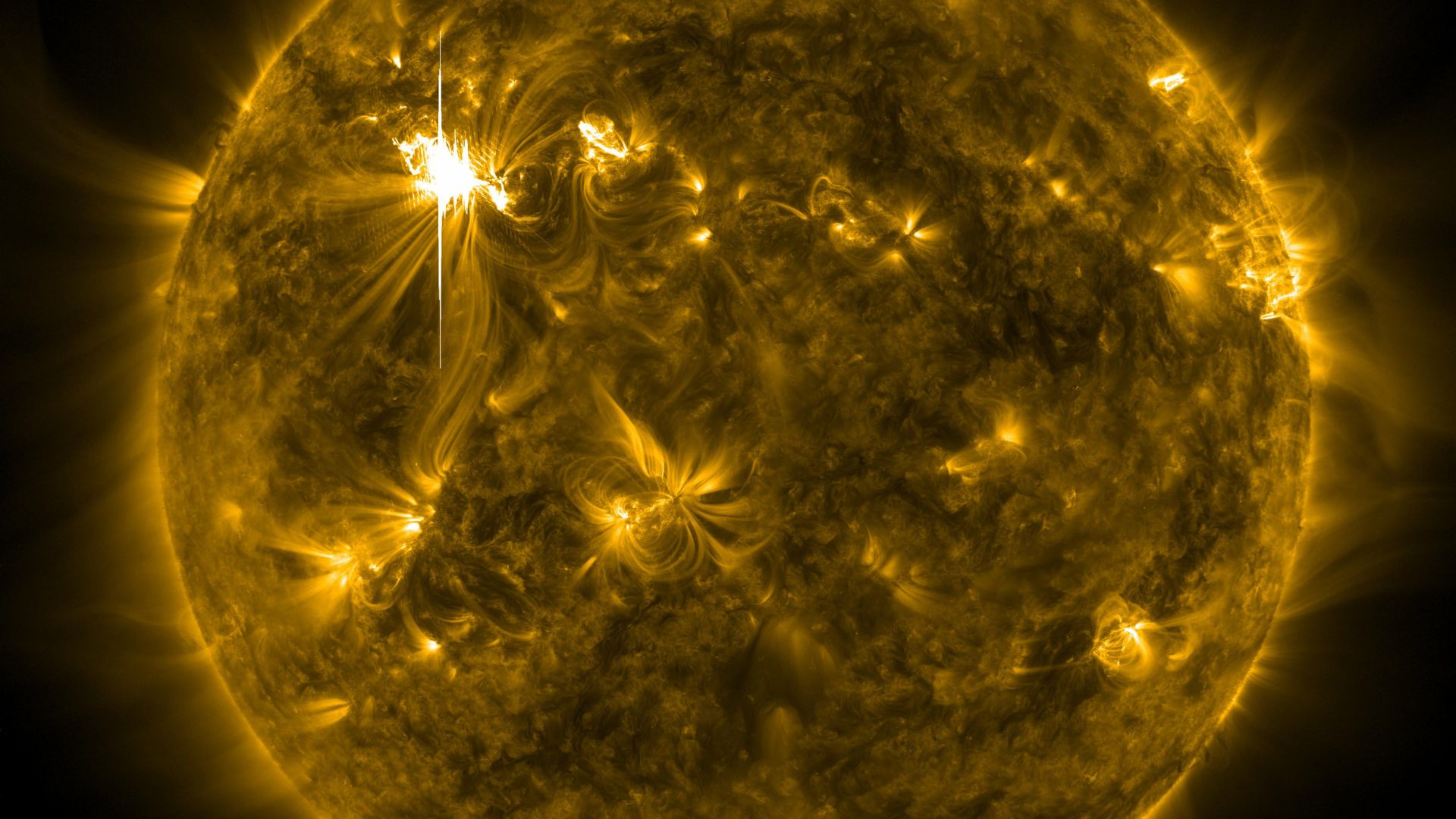
Source: NASA Goddard Space Flight Center/Wikimedia Commons
An aerospace engineering professor at the University of Colorado Boulder, Delores Knipp, suggested an increase in solar storms could negatively affect Earth. Speaking with Vox, she said intense solar storms “can actually open up Earth’s magnetic field and allow much more energy and mass to enter in through, and when that happens, then we tend to see all kinds of impacts.”
